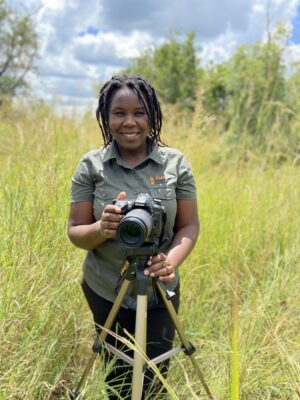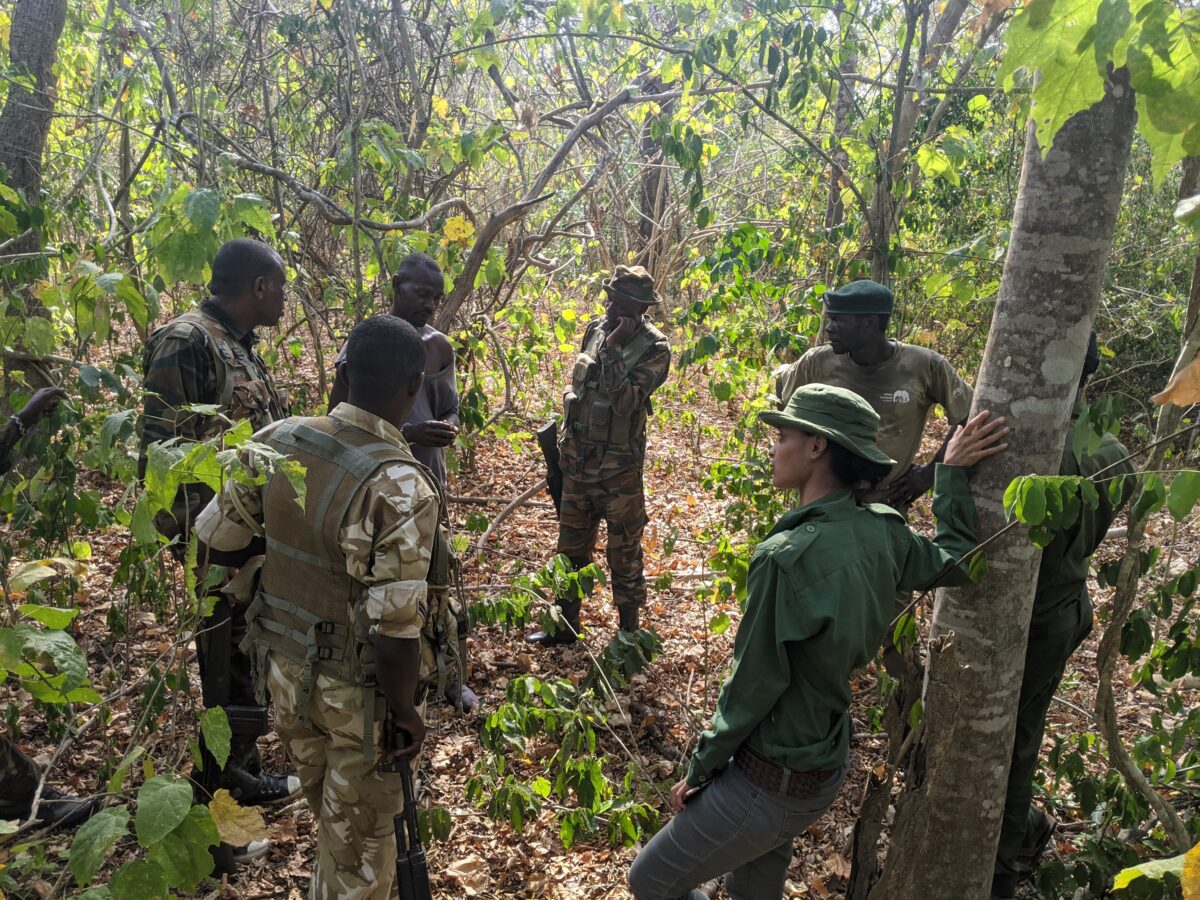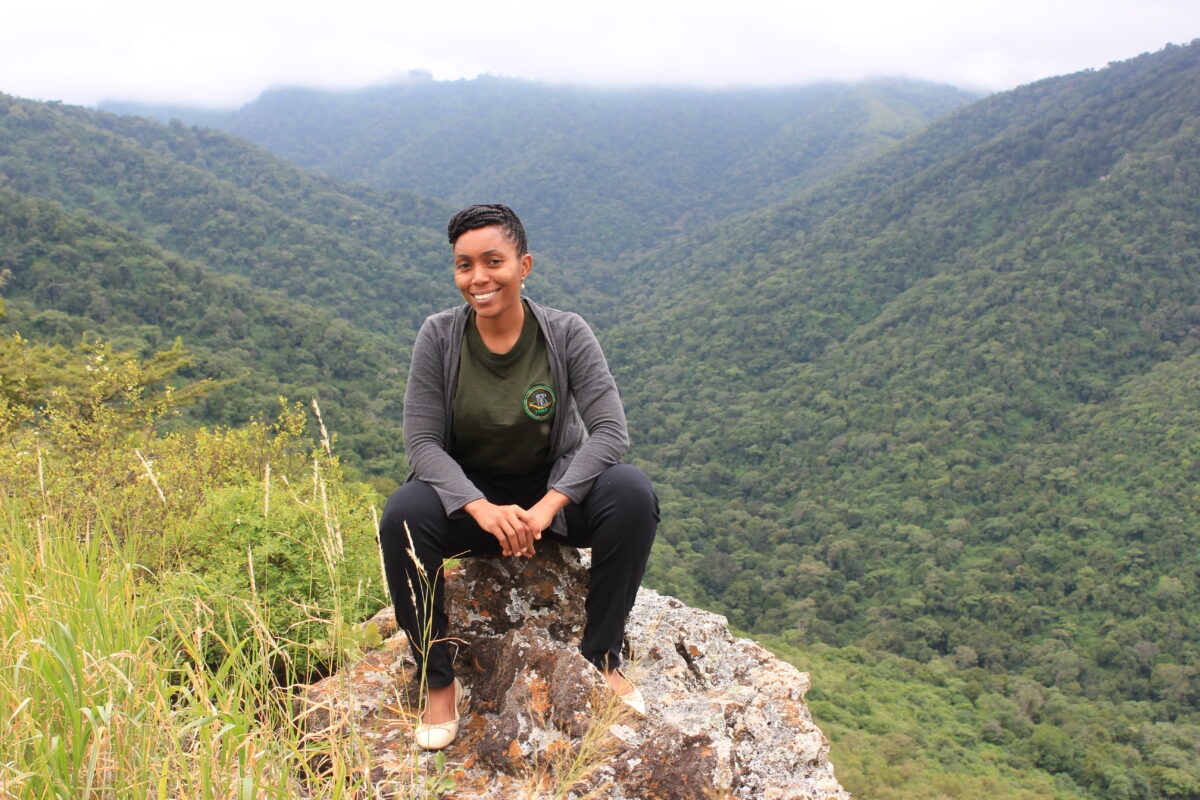Protecting the Environment through Sustainability, Conservation, and Wildlife Management
Across the globe, Mandela Washington Fellowship Alumni are conducting groundbreaking work in sustainability, conservation, and wildlife protection. This Earth Day, we are proud to feature three extraordinary Alumnae and the work they are doing in anti-poaching, wildlife management, and community development.
Combining Wildlife Management and Community Engagement
Where you find wildlife, you also find people…and the local people should be part of the efforts to conserve wildlife.”
Moreangels Mbizah, 2021 Fellowship Alumna, Zimbabwe
In Zimbabwe, 2021 Fellowship Alumna Moreangels Mbizah is bridging conservation efforts and community engagement. As the executive director & lead scientist at Wildlife Conservation Action & IAPF Zimbabwe, Moreangels spends most of her time in the field, helping set up wildlife cameras or collaborating with local communities.

Moreangels emphasizes the importance of human-wildlife conflict mitigation, implementing measures such as using the strong smell of chili peppers to prevent elephants from destroying crops and using mobile cattle bomas to protect livestock from lions and hyenas.
“Conservation should respect the rights of these local communities and work towards improving their livelihoods, “Moreangels said. “Where you find wildlife, you also find people… and the local people should be part of the efforts to conserve wildlife and its habitat and to stop wildlife crimes.”
Recently, a new children’s book called “No Boundaries: 25 Women Explorers and Scientists share Adventures, Inspiration, and Advice” featured Morangels and her work. Moreangels hopes her story will inspire other young women to pursue conservation-related careers.
Addressing Wildlife Crimes in Kenya
“My father was unique in my culture and community because he believed in empowering and enabling and educating women and girls. He passed on a love for nature, communities, and wildlife to me.”
Raabia Hawa, 2016 Fellowship Alumna, Kenya
2016 Fellow Raabia Hawa has focused her efforts on eliminating poaching in parts of Kenya. In 2014, Raabia founded the Ulinzi Africa Foundation, leaving a successful career in media to fight ivory poachers ravaging the elephant population in her country.
The Ulinzi Africa Foundation deals in several projects, including training rangers in first aid, wildlife rescue response, and anti-poaching. Raabia oversees the operations of a thirteen-person team within the organization. When she isn’t in the office, Raabia frequently joins anti-poaching patrols in the wilderness, looking for signs of human trespassing or for injured wildlife that may need help.
Raabia was proud to share the strides they have made since 2014 by almost completely “eliminating the snaring of wildlife by poachers” in their direct area of operations. Currently, Raabia and her team are working to protect a special ecosystem called the Kipini Conservancy in Kenya’s Tana Delta, where Kenya’s longest river meets the Indian Ocean.
Raabia attributes her passion for her work to her late father. “My father was unique in my culture and community because he believed in empowering and enabling and educating women and girls,” she said. “He passed on a love for nature, communities, and wildlife to me, and I am now passing it on to my niece.”

Changing Landscape: Tourism and COVID-19
Through [the Fellowship] I was able to extend my networks and connections within Africa and the United States of America as well. With these connections, I have been able to collaborate with other African colleagues and share our experiences.”
Zuwena Kikoti, 2016 Fellowship Alumna, Tanzania
At the onset of the COVID-19 pandemic, 2016 Fellow Zuwena Kikoti was responsible for supervising tourism-development activities in parts of northern Tanzania’s wildlife management areas. Working with different village rangers, Zuwena disbursed tourism revenues back into these communities to promote local development.
“Trading off between wildlife and other forms of land use is the biggest decision in many communities within and around wildlife areas,” Zuwena said, which is why it is critical for these communities to have a sense of ownership over the land and resources. Zuwena said this motivates them to better “support conservation efforts, promote sustainable use of resources, and protect their land.”
Currently, Zuwena is a Ph.D. candidate at the University of Munster’s Institute of Landscape Ecology in Germany. Through her studies, she hopes to better understand how the interactions between humans, livestock, and land in protected areas influence the sustainability of one another.
Zuwena says, “Through [the Fellowship] I was able to extend my networks and connections within Africa and the United States of America as well. With these connections, I have been able to collaborate with other African colleagues and share our experiences through different post-Fellowship programs.”

Written by Daniel Ledin.
Next Story
Fellowship Alumni
Across Sub-Saharan Africa